The Homesteaders Handbook: Raising Chickens Part 2
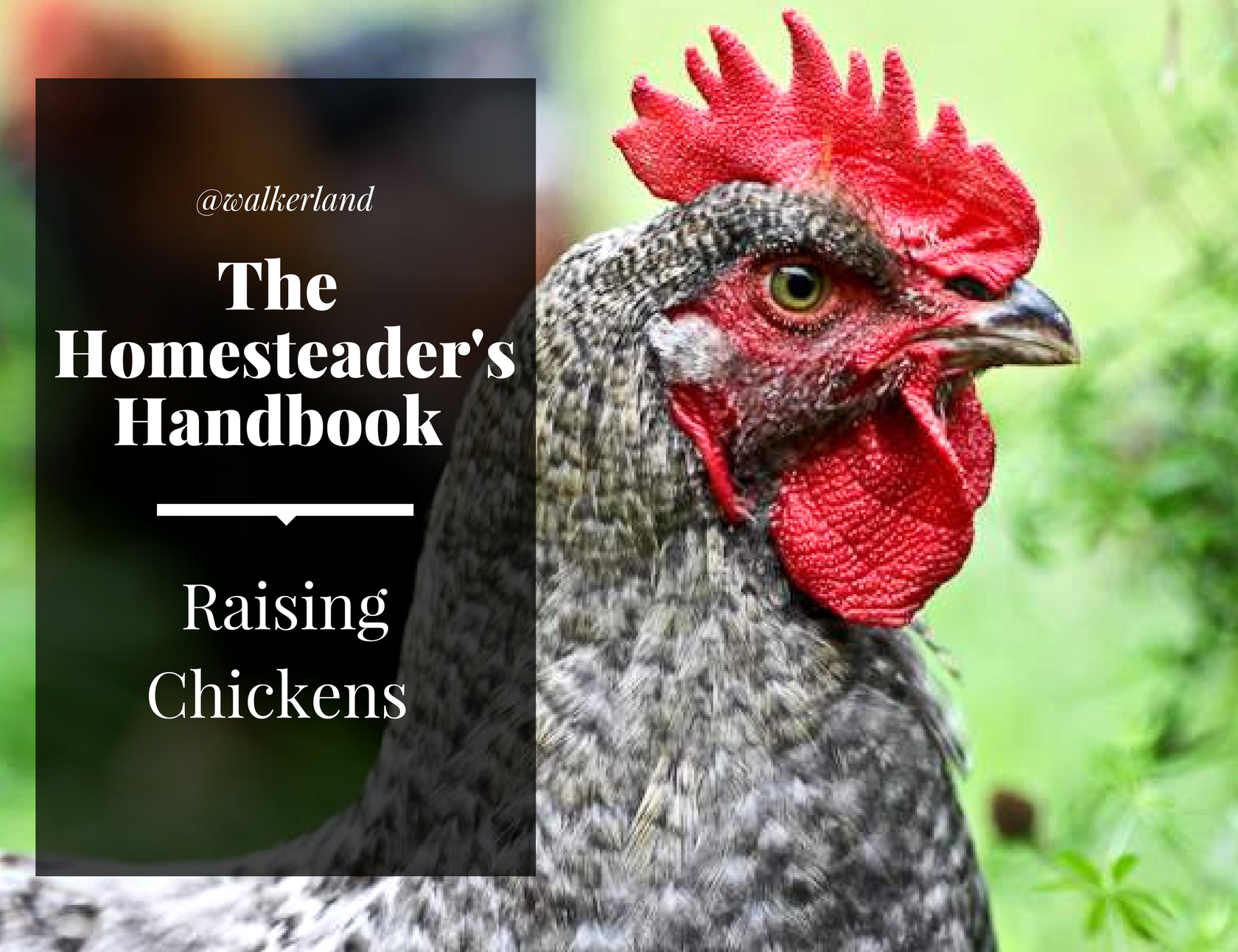.jpg)
This is the second part in a complete series on raising chickens! In this chapter we'll talk about selecting chickens, the different breeds, heritage versus hybrid, dual purpose versus layer or meat birds and so on.
You can find earlier chapters in this series here
The Homesteaders Handbook: Raising Chickens Part 1
Selecting your chickens
This is the fun part! There are hundreds of breeds to choose from. Some are sturdy and reliable (Welsummers), and others are really weird (Naked Necks) or more exotic and showy (Show Girls). You've got meat birds, egg layers and dual purpose varieties.
Depending on your ultimate desire, you may want hybrid breeds that are more for utility and efficiency or more classic heritage varieties that offer unique characteristics, colorful eggshells and more classic behaviours.
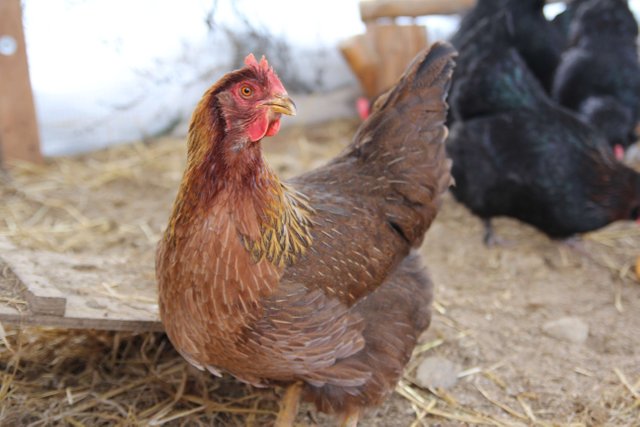 Welsummer Hen
Welsummer Hen
Common Terms When Buying Chickens
Live Egg: Un-hatched fertile egg that you can hatch in an incubator
Chick: Newly hatched, days old
Pullet: Young sexed hen
Cockerel: Young sexed rooster
Pair: 1 female + 1 male
Trio: 2 female + 1 male
Unsexed: Heritage chicks that are too young to sort by gender
Sex Linked: Hybrid chicks that are easier to sort by gender
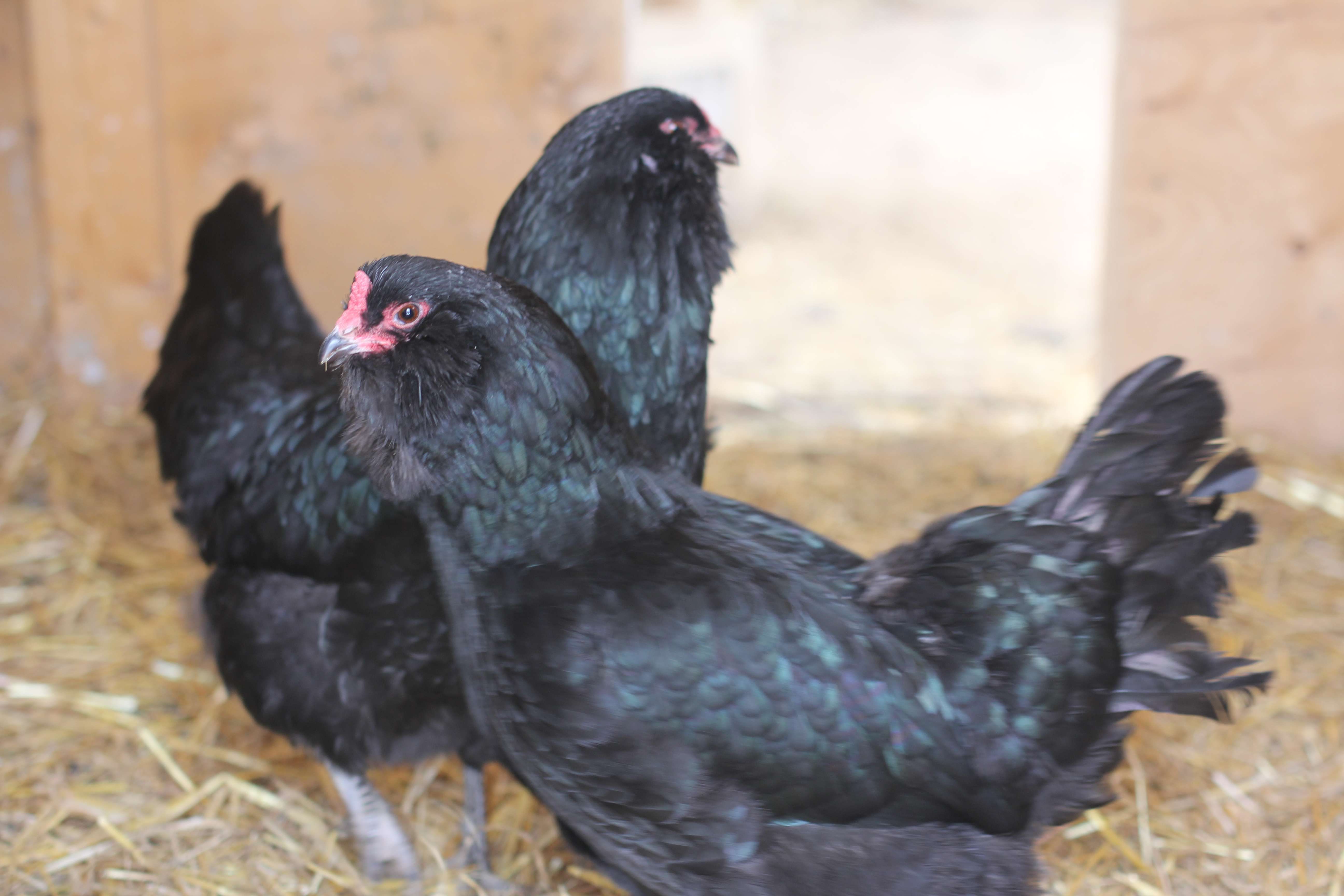 Ameraucana Hens
Ameraucana Hens
Variables & considerations
Here are some questions you will want to answer before making your decision.
What is your climate like?
Some chickens are better adapted to cold or hot climates. A large number of heritage breeds are very adaptable to climate, whereas the Hybrid breeds do better in the spring and autumn.
Do you want colored eggs? (YES, you do!)
Heritage breeds provide eggs in a range of colors from dark chocolate brown to blue and olive.
Do you intend to free range?
Some chickens are better foragers than others.
Do you want eggs, meat or both?
Some chickens are better known for their laying abilities, others for their meat content, and still others are considered dual purpose.
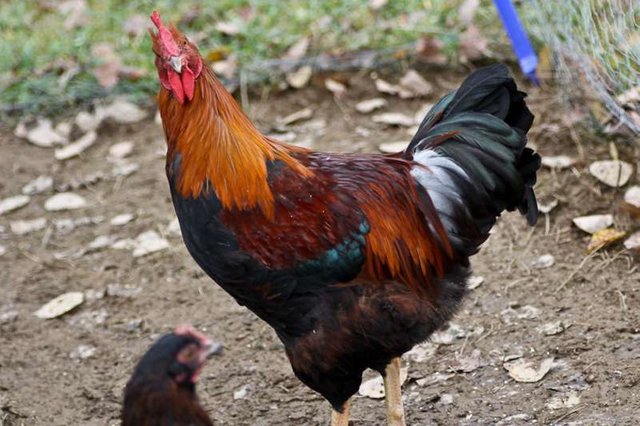 Welsummer Rooster
Welsummer Rooster
Particularly Cold Climate?
If you live in a really cold climate consider chickens with smaller combs and wattles. Conversely, if you live somewhere particularly hot and humid, you might want to consider chickens with large combs and wattles, as their large combs help keep them cool. That's not to say you can't get whatever breeds you fancy, but some will require a lot more attention when winter arrives (such as supplementary heat, which you want to avoid if you can.) You will save yourself a pile of grief if you select chickens that are properly matched to your climate.
We have a mixed flock of: Welsummers, Marans, Americaunas and Barred Plymouth Rock's. The Welsummers have the largest combs in the flock and even with a well ventilated and dry coop, they are susceptible to frostbite. The chickens with the smaller combs have never had frostbite. It really can be beneficial to your chickens if you take the time to research the breeds that are best suited to your climate.
Hybrid Versus Heritage Chickens
The chicken industry uses hybrid birds. These are high performance chickens produced by crossing a number of breeds in order to obtain specific desired traits. Commercial chickens are developed to deliver very specific things such as: fast growing, extra meaty breasts and accelerated egg production. These qualities are desirable and there is a convenience to raising meat in such a short time frame but these genetic alterations are attained at the expense of the animals health and well being. It's not quite as simple as it may seem. Much like GMO seeds, Hybrid birds don't breed well so you end up buying new chicks every time you want to raise meat or expand your egg laying flock. There is also a limited selection and often this includes Brown or white eggs and a few types of broilers (meat birds).
Lohmann Hybrid
If you are looking for a more eclectic flock, perhaps a range of coloured eggs from blue, green and olive to chocolate brown and speckled, you will want to look at Heritage breeds. There are countless breeds to choose from. Some are best for eggs, others for meat but a wide selection are considered dual purpose, good for both meat and eggs. Other heritage chickens are just for show and are really more of a strange pet than a farm animal. With all of their natural instincts intact heritage birds are good foragers, and they can be bred. This provides you with continual eggs, meat and even an income if you choose to sell fertilized eggs or day old chicks. Heritage chickens take longer to raise for meat but you have the advantage of being able to breed them for continued stock.
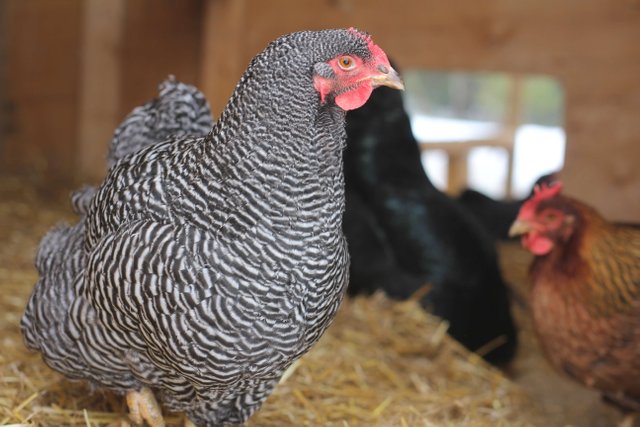 Barred Rock Hen
Barred Rock Hen
We don't raise commercial hybrids but there are clear advantages and disadvantages to both. Here are the pros and cons of each type so that you can decide for yourself.
Commercial Hybrid Chickens
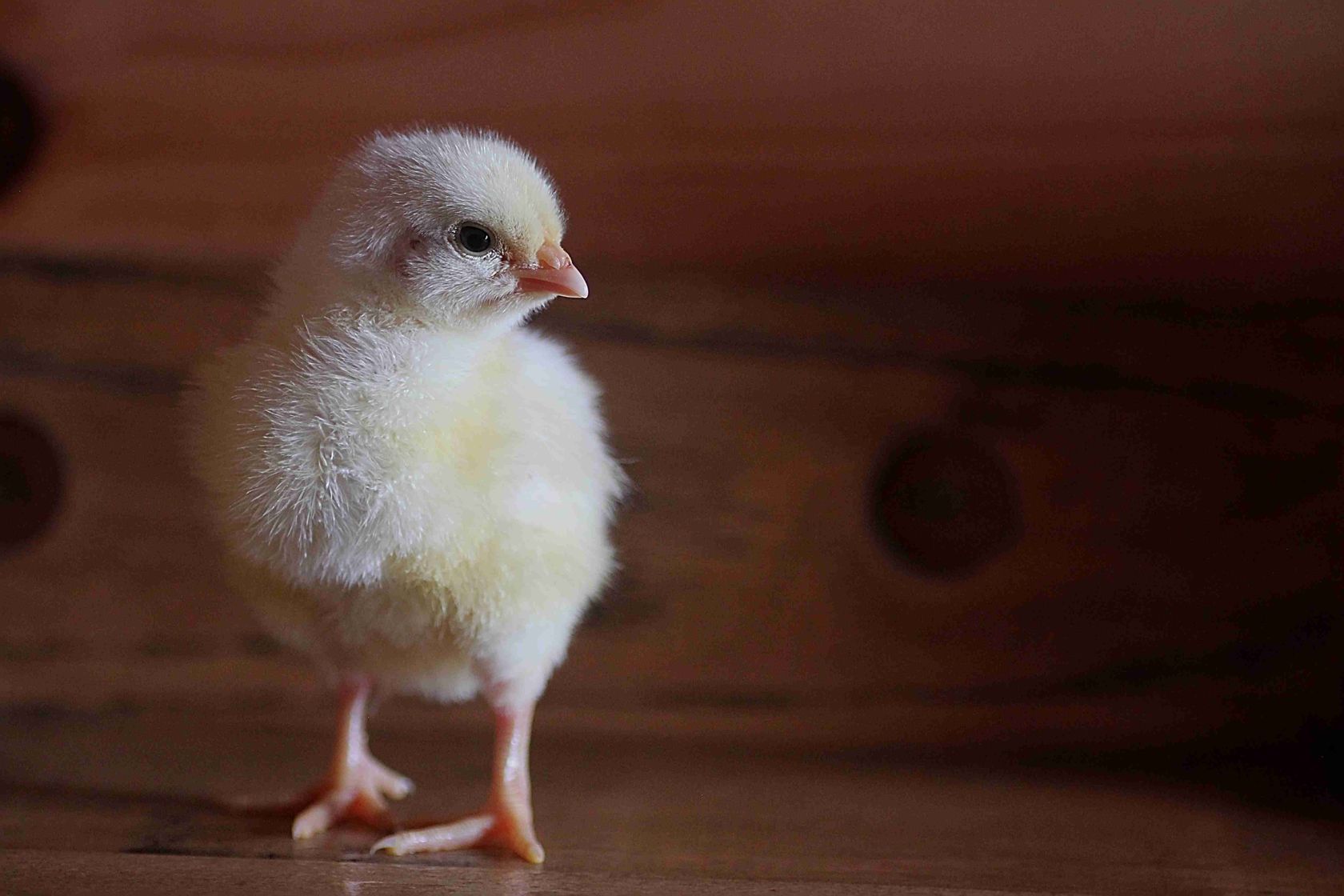
Pros:
- Produce heavy breasts and more meat
- Hens lay far more eggs (brown and white)
- Hens start laying a bit earlier than heritage varieties
- Grow rapidly. Many are ready to process at eight to ten weeks old
- Less expensive to produce
- Baby chicks are very inexpensive
- Some hybrids have a special gene that makes it easy to determine the sex of day old chicks
- Meat tastes like the meat we are accustomed to in the supermarkets
Cons:
- Not suitable for backyard breeding. Genetic make up is complicated
- Must buy new chicks each time you want to produce meat
- Hens typically lay all of their eggs in 48 months
- Lack natural instincts for avoiding predators
- Poor foragers, they rely on you for all food
- Careful feed management is necessary
- Day-old chicks are sprayed with a cocktail of vaccinations
- Are insatiably hungry and will eat themselves to death if you allow it (really!)
- Shorter lifespan for hens
Heritage Chickens
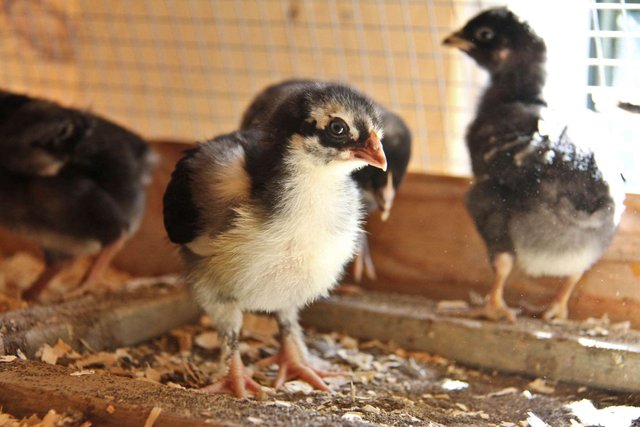
Pros:
- Colourful and unique range of eggs
- Natural instincts
- Good foragers, will augment their feed in the summer time
- Many breeds are dual purpose, good at providing both eggs and meat.
- More resistant to illness. You choose when and if to medicate
- Easy to breed and hatch more chicks
- Many hens will continue to lay for four or more years
- Entertaining to watch and engage with. More energy and character
- More flavourful meat
Cons:
- Less meat
- Baby chicks are more expensive
- More costly to raise to a good processing size
- Abattoirs may charge more to process
- Darker meat can be tougher, depending on the age of the bird
- More flavourful meat can be an adjustment
Extinction
There are many birds on the threatened or critical extinction list. By learning to raise and breed these birds you can help bring their numbers back. It may sound strange but sometimes in order to save a species we need to get people to start eating them. Some now popular breeds such as: Australorp, Brahma, Cochin and Plymouth Rock were at one time under the threat of extinction. Fortunately there has been a resurgence in interest in preserving these classic breeds, saving many from extinction. By keeping heritage birds you help support biodiversity in our food chain.
Livestock Conservancy lists many breeds on the critical list including: Campine, Crèvecoeur, Holland, La Fleche, Malay, Modern Game, Nankin, Redcap, Spanish, Sultan and Yokohama.
Breeds
There are hundreds of breeds to discover. With some research you are likely to find the best options available to you locally. Some breeds can be difficult and costly to obtain but fortunately as the popularity of keeping backyard chickens raises so does the availability of unique breeds.
Chickens can be separated into four really broad categories by purpose: Layers, Meat birds, Dual purpose and Fancy. Layers excel at laying eggs but provide poor meat, Meat birds provide plenty of meat but generally don't lay very well. Dual purpose chickens are used for both egg and meat production. Then there are the fancy chickens. These are often kept around for their unique appearance and often are not good providers of eggs or meat.
Here are some of the more well known breeds and their basic attributes. There are a LOT more chickens than I've listed here!
| Breed | Class | Type | Eggs | Egg Colour | Meat | Cold |
|---|---|---|---|---|---|---|
| Ameraucana | Heritage | Layer | Good | Blue/Green | Poor | Yes |
| Australop | Heritage | Dual | Excellent | Brown | Good | Yes |
| Barred Rock | Heritage | Dual | Very good | Brown | Excellent | Yes |
| Brahma | Heritage | Dual | Good | Brown | Excellent | Yes |
| Orpington | Heritage | Dual | Good | Brown | Good | Yes |
| Marans | Heritage | Dual | Good | Chocolate | Good | Yes |
| Rhode Island | Heritage | Dual | Excellent | Brown | Average | Yes |
| Silkie Bantam | Heritage | Layer | Good | Cream | Poor | Yes |
| Wyandotte | Heritage | Dual | Very good | Brown | Excellent | Yes |
| Welsummer | Heritage | Dual | Very good | Chocolate | Excellent | Yes |
| Leghorn | Hybrid | Layer | Excellent | White | Poor | No |
| Red sex link | Hybrid | Layer | Excellent | Brown | Poor | No |
| Cornish X | Hybrid | Meat | Poor | Excellent | No | |
| Dorking | Heritage | Dual | Good | Excellent | Yes | |
| Delaware | Heritage | Dual | Good | Excellent | Yes |
Where to Purchase your Chicks
You have a choice of using a smaller local breeder or a medium/large hatchery. The types of chickens you want to raise will dictate which source you need to contact. Your local feed store may only have one type of bird to select from, or they might offer a selection. Local breeders usually have a web presence sharing photos of the breeding stock they use, the varieties that they specialize in and their pricing and availability. Either way you decide to go, you will want to place your order early to avoid disappointment.
 Mixed Breed Flock
Mixed Breed Flock
Breeders
When looking for speciality breeds your best bet is to find a reputable breeder. You will want to place your order in late winter/early spring as most breeders have limited numbers available and pre-orders assist them with knowing how many eggs to put in their incubator. Where I live there was no one selling the heritage chickens that we wanted so I drove 150KM to pick them up. Not all breeders/suppliers will ship live chicks so try and find someone local. Prices depend on breed but generally heritage chicks are $3-10 Canadian each. A good breeder will be able to answer all of your questions and should seem passionate and caring about their chickens.
Hatcheries
Often the chicks that your local feed store brings in will come from large production hatcheries. These are most often the more commercial breeds although some do offer a line of heritage birds as well. Our local feed store carries the Lohman variety and offers you a choice of Brown or white egg layers for $2.50 Canadian each or Broilers (meat birds) for $1.45 each.
Crazy fact: It is a practice now for large hatcheries to clip the beaks of their birds, it's called “de-beaking”. The beak is shortened permanently. High stress, crowding and confinement encourages chickens to peck at one another. The solution is clipping their beaks so they can't hurt each other.
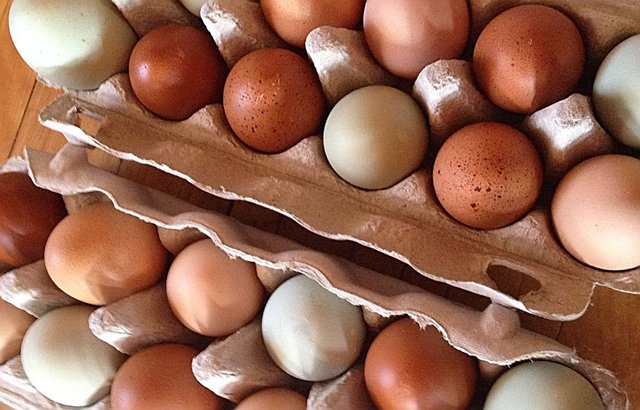
Fertilized Eggs
If you have an incubator and are looking for speciality breeds some breeders will package and ship fertilized eggs to you. Usually there is no guarantee with these eggs as the shipper simply can't control what happens during shipping, even with the best packaging. If you can, it is best to arrange pick up of your eggs.
Sexed/Unsexed/Straight Run/ What does it Mean?
Final Notes
Often with small breeders, you will get “straight run” chicks, which means that they are a mix of both genders. A lot of breeds are nearly impossible to confidently sex until they are older and start to show physical signs. Be aware that even when promised "sexed" chicks, it is not fool proof and you might still get roosters.
Sometimes you can buy pullets (young hens) enabling you to skip the baby stage and avoid having roosters. This is more expensive as the breeder has to feed and care for them for several months in order to guarantee the sex.
As you can see, there are a lot of options available to you when it comes to choosing the right chickens for your homestead or back yard!
This content comes from my Ebook "The Homesteader's Handbook: Raising Chickens". I've decided to give the knowledge away here on steemit where it may help those looking to get into raising chickens. This was always my intention when writing this book.
_All rights reserved. Photos copyright @walkerland The information in this book is true and complete to the best of our knowledge. All recommendations are made without guarantee. The author and publisher disclaim any liability in connection with the use of this knowledge. _
Building a greener, more beautiful world one seed at a time.
Homesteading | Gardening | Frugal Living | Preserving Food| From Scratch Cooking|
You can also find me at: walkerland.ca
Photo copyright: @walkerland

Great info!! :D
Thanks! :)
We mainly have Buff Orpington and Road-island Reds for eggs and they have worked out well in the past, but this winter our egg production is down more then usual for winter. Very well written good work!
I've got a few Black Copper Marans and I think they might be my favourite layer. I would like to get a few Road-island hens, I've heard great things. Our egg production stops until spring but we don't give them any artificial light/heat in the winter.
Love the Australop and Rhode Island reds, what we always had, along with a few leghorns.
We would love a few Rhode Island reds! I agree, Australop's are a nice breed.
So much great info. We have Ameraucaunas, road island reds, and buff rocks, and some black australorps. Didn't realize some had dual purpose. We have a solar light in their coop that keeps them laying through the winter, but production did drop off for a while bcuz of molting. Thank you for such a quality post!
I will admit ...the Ameraucaunas in our flock are not my favourites. They are such punks always causing trouble :) I know other people have a completely different experience though. Thanks for the nice feedback, I appreciate it.
Lol ours are scaredy cats! They will barely come out of the coop! I just love their beautiful eggs. :)
Thanks. We're looking at getting a few chickens for our backyard. We live in malta which is cold right now (but no snow or ice) but really hot in the summer. Which breed of chickens would you recommend if we want lots of eggs? Thanks
There are a bunch of variables that can impact egg production but you'll want to make sure you get a breed that is known for being a good layer and that can handle hot climates. I suggest you look at the Rhode Island Red!
Thanks. I will bear that in mind :)